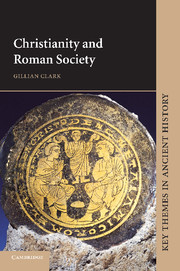3 - The blood of the martyrs
Published online by Cambridge University Press: 05 June 2012
Summary
The people's flag is deepest red:
It's shrouded oft our martyred dead.
And ere their bones grow stiff and cold
Their hearts' blood dyed its every fold.
So raise the scarlet standard high,
Beneath its shade we'll live or die.
(James O'Connell, ‘The Red Flag’, 1899)Your cruelties, each more refined than the last, achieve nothing. They attract others to our school. Each time you mow us down, you increase our number: the blood of Christians is seed. Many of you preach endurance of pain and death: Cicero in the Tusculans, Seneca in Chance, Diogenes, Pyrrho, Callinicus. But their words do not find as many followers as the Christians do in teaching by actions.
(Tertullian, Apol. 50.13–14, 197 ce)Jesus died on a cross: a public, agonising death, legally inflicted by a Roman provincial governor as the standard punishment for rebels. For almost three hundred years, his followers were also at risk of legally inflicted death, sometimes as a public spectacle. Roman law allowed Christians to be burned alive or thrown to wild animals or inventively tortured. But after two millennia of Christian imagery, people do not connect Roman legal penalties with Amnesty reports. Some people wear a crucifix, a model of a man fastened to a cross (Latin cruci fixus), as an item of jewellery. ‘Christians 0, lions 43, in sudden-death overtime’ does not provoke the same response as a news report of a zoo-keeper mauled to death, or of a prisoner on Death Row.
- Type
- Chapter
- Information
- Christianity and Roman Society , pp. 38 - 59Publisher: Cambridge University PressPrint publication year: 2004



